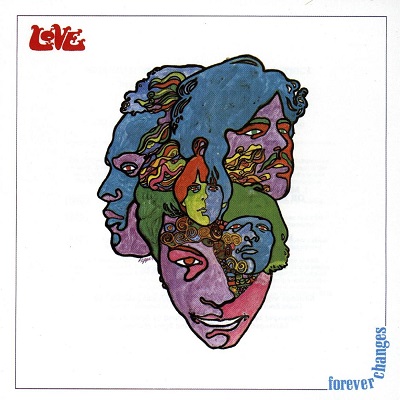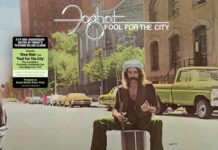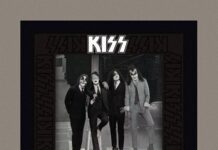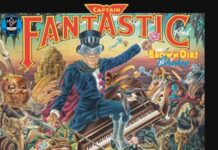If ever there was an album one should justifiably light up to, Love’s Forever Changes takes the cake (which you might want back if you’re smoking the right stuff). Awash in whimsical acoustic guitars and orchestral embellishments — and lightning rods of electric guitar for dramatic effect — Forever Changes is a triumph of musical credibility for the flower power revolution. The music is at once touching and distant, held steady by an uneven combination of patience, elegance and melancholy. Rhino celebrates the 50th anniversary of this truly essential album with a Deluxe Set that includes four CDs, a DVD, an LP and a booklet with liner notes and photos. There are four mixes of the album’s 11 songs — stereo, mono, alternate and 24/96 high-definition stereo, along with a disc of singles and outtakes.
Love was a band that rarely ventured out onto the road, choosing instead to hole up and hibernate in Bela Lugosi’s mansion. Fueled on an assortment of hallucinogenics and acrimonious with one another, how the members of Love ever managed to release an album of such caliber is just another unexplained result of combustible genius. Ah, what heady days those 60s were. Arthur Lee, Love’s leader and self-proclaimed mastermind, kept everyone on their toes. His past associations with people like Jimi Hendrix gave him the upper hand in plotting the band’s every move.
Love showed a lot of potential with both their self-titled debut and De Capo albums, but success robbed them of any desire to expand their horizons, so to speak. Rather, an indulgence of various mind-altering substances robbed them of their abilities to effectively move forward as a band. This led the executives of Elektra Records, entering into another tempestuous relationship with the Doors, to seek professional help. When Neil Young (!) and Phil Spector’s Wrecking Crew were brought in to help resuscitate the sessions, the band members sobered up long enough to lay down the tracks themselves. In the end, the competitive edge brewing between Lee and guitarist Bryan Maclean was enough to reap an unyielding collection of beatific and odd songs.
Maclean’s vulnerable state and fondness for flamenco rhythms unmistakably collide on “Alone Again Or.” Although it probably would have sounded fantastic in the hands of the Moody Blues, UFO did an admirable job covering the song in the late 70s. Lee’s “A House Is Not A Motel” a nod to the Burt Bacharach/Hal David song, “A House Is Not A Home,” illustrates the singer-songwriter’s penchant for cryptic themes. And the guitar exchange between him and John Echols that winds down the song is about as psychedelic as it gets.
Groooovy baby! “Andmoreagain,” with its peculiar and mesmerizing melody, and the livelier “The Daily Planet” are further evidence of Lee’s undulating talent. “The Red Telephone,” supposedly inspired by a red telephone that received a fair share of abuse in the House of Love, and “Live And Let Live” with its startling opening line, actually allude to death and war. By the time “You Set The Scene” somberly rolls through, it’s hard to refrain feelings of both sadness and elation.
In addition to the multiple mixes of the album, there’s a disc with 14 additional songs, including an original mix for the outtake “Wonder People (I Do Wonder),” an alternate electric backing track for “Andmoreagain,” tracking session highlights for “The Red Telephone” and an outtake of “Wooly Bully.” There’s also “Your Mind And We Belong Together,” the B-side “Laughing Stock,” and a demo version of “Hummingbirds,” which later evolved into “The Good Humor Man He Sees Everything Like This.”
The appeal of Forever Changes, inducted into the 2008 Grammy Hall of Fame, seems to lock in with each passing generation — a telltale sign that what forever changes can just as easily remain the same.
~ Shawn Perry




















